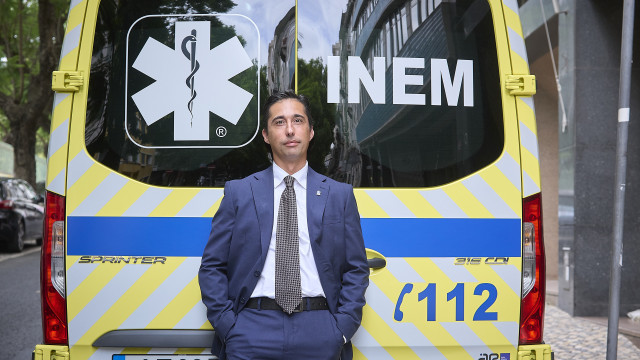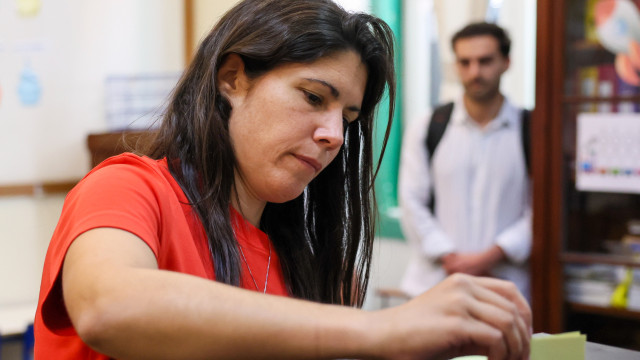The Minister of Health, Ana Paula Martins, clarified on Friday the process that led to the replacement of Sérgio Janeiro as head of the National Institute of Medical Emergency (INEM) and reiterated that “there was no resignation.”
“Dr. Sérgio Janeiro was serving in an interim capacity and, in the meantime, a competition occurred. We had candidates, and another person was chosen as president of INEM. There was no resignation,” she stated to journalists in Porto. The minister expressed the government’s gratitude towards Sérgio Janeiro “for embracing the mission during such a challenging interim period,” following the resignation of the previous INEM president.
“We opened the competition within the legal timeframe, there were competitors, all procedures were completed, and a selection was made,” she added.
Questioned about Sérgio Janeiro being one of the three names validated by the Public Administration’s Recruitment and Selection Commission (CReSAP) to lead INEM and yet not appointed by the Ministry of Health, the minister considered it a “non-issue” and reiterated that “one person was chosen.”
“There were three major candidates, and as such, all passed CReSAP with positive reports. Subsequently, various interviews were conducted, and a decision was made regarding the president and the Board of Directors,” she emphasized, without confirming who the new president of INEM will be.

The Minister of Health, Ana Paula Martins, dismissed INEM’s president, Sérgio Dias Janeiro, and is preparing to appoint Luís Cabral, who heads the medical emergency in the Azores, as his successor.
Márcia Guímaro Rodrigues with Lusa | 09:08 – 24/10/2025
A source from the Ministry of Health had previously clarified to Lusa that the president of INEM was not dismissed but would be replaced.
“There was no dismissal of the president of INEM. Following a competition opened by CReSAP, for the recruitment and selection of the president of INEM, one of the three candidates validated during this procedure was chosen,” which is not the current president, was clarified.
In addition to Sérgio Janeiro, Luís Cabral, and Nélson Pereira were validated by CReSAP. According to CNN Portugal, the minister will appoint Luís Cabral, who leads the medical emergency in the Azores. The announcement is expected next week.
The process for appointing INEM’s new president, opened in January, was interrupted due to the scheduling of the anticipated elections in May, with Sérgio Janeiro remaining in office, having been appointed for 60 days.
Ana Paula Martins’ ministry had already received proposals from the Public Administration’s Recruitment and Selection Commission (CReSAP) on the candidates who applied for the position.
The competition opened on January 6 and closed on the 19th of the same month, following an initial competition that did not have enough candidates.
An expert in emergency and anesthesiology medicine, with competence in medical emergency, Luís Mendes Cabral is currently the clinical director of the Regional Service of Civil Protection and Firefighters of the Azores, where he is also a regulatory doctor and trainer.
He is part of the air evacuations team at the Hospital do Divino Espírito Santo, on Terceira Island, and was the regional health secretary of the Azores Government from 2012 to 2016.
Union had already asked the government to reassess the appointment of Luís Cabral
The Union of Pre-Hospital Emergency Technicians (STEPH) requested at the beginning of the week for the reassessment of Luís Cabral’s nomination for president of INEM, claiming that the doctor’s choice “raises many and legitimate concerns” for sector professionals.
In a letter sent to the Prime Minister, STEPH appealed for Luís Montenegro to “reassess this potential nomination,” ensuring that the choice for the presidency of INEM is “guided by the principles of competence, continuity, and public interest.”
The union suggests that Luís Cabral’s appointment to head the institute, not yet confirmed by the government, is a “decision that could represent a setback in the path of cooperation and modernization that has been pursued,” endangering the “spirit of trust and stability that has been carefully built.”




